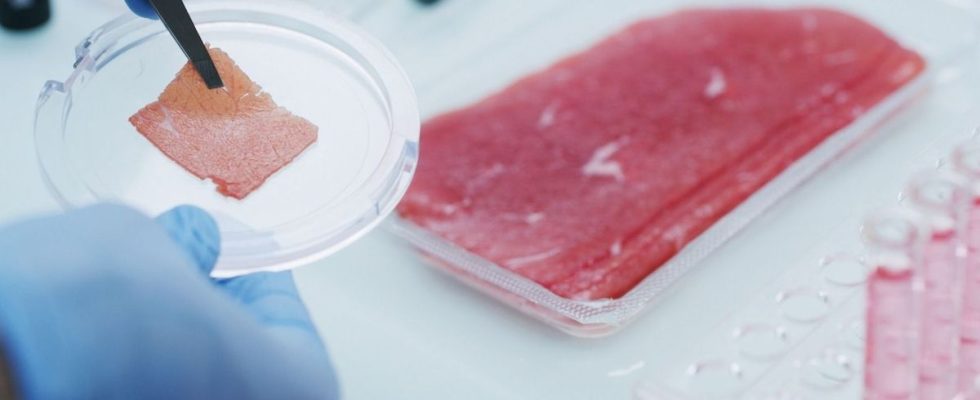Published on
Updated
Reading 3 mins.
While Italy announced the candidacy of its cuisine for UNESCO’s intangible cultural heritage just a few days ago, the transalpine government intends to preserve it by banning steaks or any other food grown under a microscope.
Are rigatoni al ragù, tagliatelle carbonara and osso bucco endangered by technological innovations in laboratory meat? The comparison might seem fanciful. And yet, Italy believes it, in any case the Minister of Agriculture who added to his title, when he was appointed, also being responsible for the food sovereignty of the transalpine boot. Italian MPs passed a bill to ban not only the production of steaks and other foods made under a microscope, but also their import and export. The government is very serious about this and provides for a fine of 60,000 euros for these companies manufacturing plant alternatives that may be tempted to give in to the initiatives of these food tech, reports the Guardian.
This type of food, described in Europe as “novel food” in the same way as insects, is however not authorized for marketing within the Union (unlike crickets and mealworms, among others ). And it is not close to being, in the opinion of Inrae. “In Europe, you cannot use hormonal implants with animals in traditional breeding, unlike the United States, South America or Australia. The European legislator considers that adding a supplement of hormones to those already existing in animals could potentially represent a risk. It would therefore be difficult to understand that Europe accepts the addition of hormones to produce ‘cultured meat’“, told us Jean-François Hocquette, researcher at the National Food Research Institute. In the world, it is only in Singapore that the distribution of synthetic meat has received the green light.
In the name of Italian culinary traditions
Still, beyond the health issue, Italy also fears for the preservation of its culinary identity. The Minister of Health, Orazio Schillaci, thus evoked the potential disappearance of the Mediterranean diet if research into food produced in vitro continues in this direction. The Minister of Agriculture, Francesco Lollobrigida, meanwhile, sees these innovations as a danger to Italian traditions. It should be noted that this opinion does not have a consensus within the Italian political class. In recent years, Italy has never ceased to worry about the preservation of its culinary heritage, adopting measures in turn to prevent street-food from grabbing too much of the restaurant business. This was the case in Venice in 2017 where the municipality no longer wants to authorize new fast-food brands. We remember that the opening of a McDonald’s near the Vatican a year earlier had caused controversy.
In Europe, Italy is however (for the moment?) quite alone in opposing research into meat and synthetic foods. According to a report from the Digital Food Lab, more than nine billion euros were invested in food tech companies (knowing that this does not only include laboratory meat research) in 2021. In 2020, the envelope amounted to only to three billion euros. The frenzy has died down, however, as investments fell by 36% between 2021 and 2022.
Italy, an example against the tide in Europe
In more detail, when we only take into account the amounts devoted to the development of synthetic food, the third country to put the most money in its pocket is indeed in Europe. This is the Netherlands. The country of the tulips is that of Mosa Meat, the famous company which developed the very first burger composed of in-vitro steak in 2013. It even boasts of having obtained the accompaniment of the star Leonardo DiCaprio as a ‘investor. According to a report published by the British firm GovGrant, the Netherlands has invested nearly 124 million pounds (about 140 million euros) in 2022 to develop laboratory meat techniques, falling far behind the biggest world leaders, namely the United States (1 .3 billion pounds, or about 1.5 billion euros) and Israel (475 million pounds, or about 538 million euros). Home to the HigherSteaks business, the United Kingdom is fifth (28.55 million pounds, or about 32 million euros), France is ninth (10.70 million pounds, or about 12 million euros) and tenth Spain (10.12 million pounds or about 11.5 million euros).
